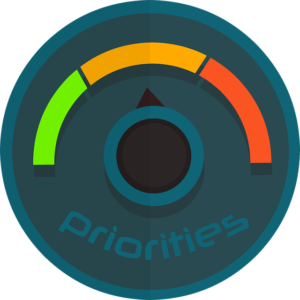This post may contain affiliate links and I may earn a small commission when you click on the links at no additional cost to you. As an Amazon Affiliate I earn from qualifying purchases. You can read my full disclaimer here.
Revisiting Goals
 It is now July! Where has this year gone? It has been arguably the slowest and fastest first half of the year ever. With the year half over, it is now time to revisit the goals I set at the beginning of the year and see how much progress is being made towards those goals.
It is now July! Where has this year gone? It has been arguably the slowest and fastest first half of the year ever. With the year half over, it is now time to revisit the goals I set at the beginning of the year and see how much progress is being made towards those goals.
You may recall that in January, I shared how I select a word to focus on for the year and I don’t set new year’s resolutions. You can read my thoughts on this here.
My word for the year is determined. I want to be determined to make progress in my health, personal finances, self-care, and spiritual renewal.
As a teacher, I am always analyzing data. I love looking at graphs and seeing where progress is being made and where I can work on improving.
Upon reflection, I would say that my determination towards making progress in these areas looks a lot like an inverse bell curve.
I started out the year really strong. Determination started to run out during the second quarter of the year. Realizing this is the case, I am working on bringing it back.
 What Happened?
What Happened?
This is probably one of the silliest questions to ask this year. I think anyone in the world would be able to guess what the problem is and can probably identify with a loss of motivation towards meeting goals for the year.
With COVID-19, it really set me off course. I went in to the whole quarantine thing feeling really optimistic. I didn’t believe it was having a large effect on me and I was determined to make the most of this unique time.
However, about 6 weeks in to everything, I started to realize that I was not dealing with my emotions. It felt like everything was jumbled together and success was elusive.
Results
As a result, I found myself eating things that were not on the plan I was supposed to be following, self-care had gone out the window, and my spiritual walk was struggling a bit. The only thing that was still going pretty well was making progress towards my financial goals.
I couldn’t understand why I was feeling this way and why everything seemed to be at a standstill. For some reason, I thought I was supposed to be immune to the stress that the rest of the world seemed to be feeling in this situation.
Where Does that Leave Us?
So, I may not be where I wanted to be at this point in the year. However, there is good news. The year is not over yet!
While the pandemic is still a real thing and all I see is uncertainty in the future, I can regroup and finish out the year strong.
It is not too late to see real progress. The best part of this is that if I can make good progress under these circumstances, there will be no more reasons for me to not make progress when times are good.
7 Tips for Regrouping
It is important to acknowledge where I am at and then find ways to regroup and move forward. The only way this year would be a total loss is if I decided to give up now. Here are seven tips that might help you regroup and reach your goals by the end of the year.
1. Set SMART Goals
 I talked about not making a laundry list of goals to accomplish. While I still believe this is a good thing, my reflection showed me that I don’t have a way to measure how much progress is being made.
I talked about not making a laundry list of goals to accomplish. While I still believe this is a good thing, my reflection showed me that I don’t have a way to measure how much progress is being made.
In setting my word for the year, I talked about giving myself small little nudges towards my goal. I have decided that I want to write down these little nudges each month in my life planner. This will be a way for me to hold myself more accountable.
A SMART goal is specific, measurable, attainable, relevant, and time bound. Setting this nudge, to be accomplished each month will help me to keep it attainable. One of the problems I had with setting yearly goals is that they were always so lofty, there was not possible way I would meet it by the end of the year. This would cause me to give up and stop even trying.
At the end of each week, I will look at the monthly nudge and see if I am progressing towards meeting it or if I have already met it. When I am making progress, I can just keep it up. If I am not making progress, I need to decided what is holding me back and see if I need to make an adjustment to something. If I have already met the goal, I can set a new one to work towards.
2. Growth Mindset
I spend so much time teaching my students how to have a growth mindset at the beginning of the year. This is absolutely essential if they are going to make any progress.
For some reason, I feel like we forget this applies to us when we become adults. When it comes to attaining my goals, I often get into this “all” or “nothing” mindset.
If I don’t see myself going all in and doing it perfectly, I just give up and say it is over now. Maybe tomorrow I will start again. This cycle and need for perfection ends up sabotaging me all the time.
As I talked about in a previous blog post, this type of thinking seems to stem from a fear of failure. With this in mind, some mindset work would be really beneficial.
3. Take Responsibility
This can be really hard. I know that one of my core values is responsibility. I often feel a sense of responsibility to others and will make sure that I am doing my part not to let them down.

For some reason, particularly in the area of health goals, I don’t seem to have this same sense of responsibility to myself. I can’t allow my fear of failure to give me an avenue to make excuses for why I am not getting something done. For example, I can’t use the excuse I don’t have time to exercise if I have spent an hour watching YouTube videos that day.
Getting side-tracked with things that were “more important” to finish right now, while meal prepping or exercise get neglected, is not okay. I need to take responsibility to schedule things into my day that will help me to reach my goals.
These scheduled items need to be regarded with the same respect that I would regard an appointment with another person. Now, if you typically flake out on your appointments with others you might need an intervention in that area first.
4. Accountability
This is another tough area. Accountability might look different for different people. If you are someone who does better being accountable to others, you may want to find an accountability partner. Find someone that you can check in with and share what you are doing each week to meet your goals.
This can get a little tricky. You want to make sure that you are not so dependent on this person that you don’t hold yourself accountable. There has to be a fine balance.
Here’s why I say that. If you are going to go to the gym with a partner, this can be great if you both are showing up every day. However, what happens when your partner is sick and can’t come? Do you still show up because you are accountable to yourself? Or do you decide that you could skip that day as well because no one would miss you?
Accountability might also look like creating a tracker for yourself. Or, if you sign up for my newsletter, you can have one sent to you that I created. You can give yourself stars for the things that you accomplish and it could lead to a little larger reward at the end of the month.
5. Rewards
My students love earning rewards for things that they do. Let’s face it, I do too. If you are accepting responsibility and holding yourself accountable, you might as well set up a reward system for yourself.
This has to be done thoughtfully as to not sabotage all the hard work you have done. Think carefully about what you need to do to earn the reward and make sure the reward is something that makes sense for your goal.
For example, if you are trying to improve your health, it might not be the best idea to make your reward food related. If your goal is to improve your financial situation, it might not be a good idea to make your reward a purchase.
Now, you know yourself best and you know if you could handle these types of rewards. For me, rewarding myself with these items can lead to a tailspin back into old habits. Just use caution.
I have been loving audiobooks. Sometimes I will reward myself with a new one that I have really wanted to listen to. You may be able to connect to some through your local library. I have been using Audible for some time. I will leave a link here if that is something you are interested in checking out. This can work as a dual purpose. It can serve as a reward and also be part of your personal development plan.
6. Use a Tracker
This could fall under accountability, but I also think it can provide motivation.
Use a tracker to record your progress towards the big goal. I have seen people do this when they are paying off debt. They might create a picture and then color in parts of it every time some of the debt is paid off. This can help you to stay motivated to continue paying down the debt.
You could also do this for health goals such as weight loss. Coloring in a piece of the picture each time you make progress towards your weight loss goal could be motivating.
This is a really good idea for keeping track of your progress, especially if you are a very visual person.
7. Revisit Goals
One of the reasons that New Year’s Resolutions aren’t effective is because we set them and forget them. If you are not frequently checking in on your goals and the progress you are making toward meeting them, you will forget all about what you set out to do.
You don’t have to look at your goals every single day, but it is a good idea to set a time when you will reflect on your progress. This could be weekly, monthly, or quarterly, depending on what you are setting out to do.
Just be sure that you are regularly checking in.
Conclusion
Don’t give up! Just because you have had some set-backs, doesn’t mean all is lost. The mere act of regrouping and starting again is a win all on its own. Try these 7 tips and finish the year out strong!
Amazon and the Amazon logo are trademarks of Amazon.com, Inc, or its affiliates.

